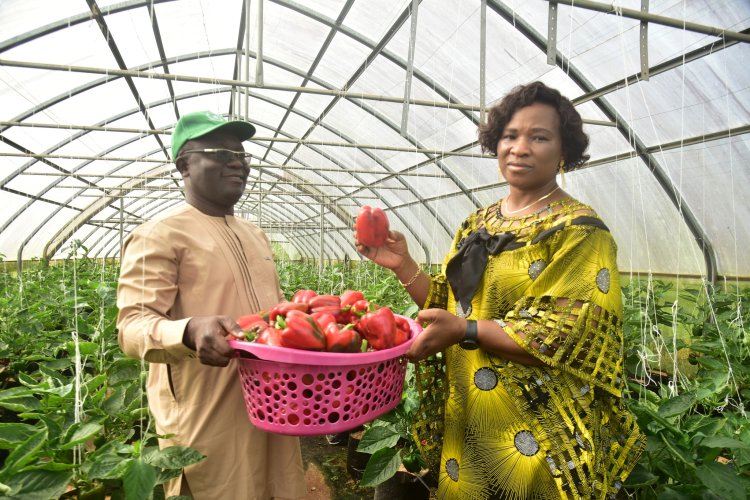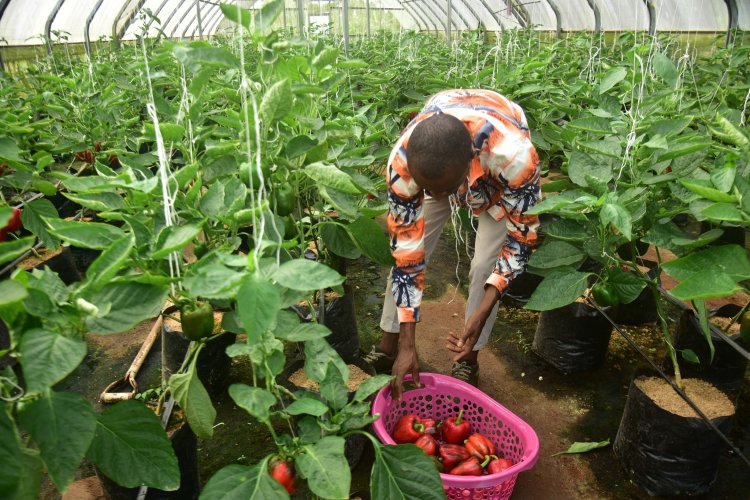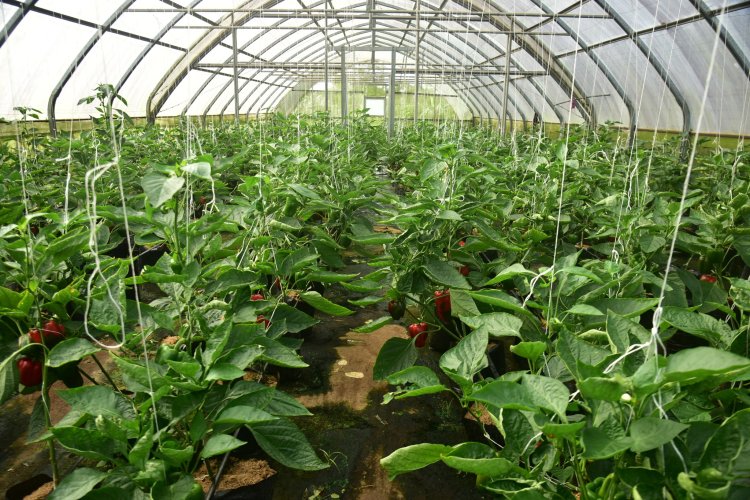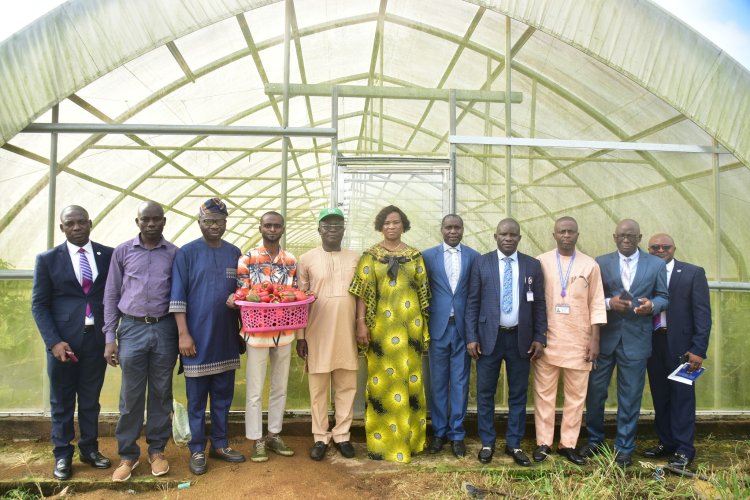FUTA Set to Train Farmers on Greenhouse Cultivation of High-Yield Bell Peppers
Federal University of Technology Akure (FUTA) is preparing to train farmers and interested individuals on the cultivation of the F1 variety of bell peppers, a high-yielding and disease-resistant hybrid.

The Federal University of Technology Akure (FUTA) is preparing to train farmers and interested individuals on the cultivation of the F1 variety of bell peppers, a high-yielding and disease-resistant hybrid. The Vegetable Production Center at FUTA has announced its readiness to guide farmers through the greenhouse planting and nurturing process of this superior bell pepper species, which offers several advantages over traditional varieties.

During a working visit to the Greenhouse Research Farm on Monday, October 21, 2024, FUTA’s Vice Chancellor, Professor Adenike Oladiji, was briefed by the team leader for vegetable production, Professor Ayo Olalusi, who highlighted the key features of the F1 bell pepper. He described it as an early-ripening hybrid that requires no staking due to its bushy plant structure. Additional benefits include its strong resistance to diseases, vigorous growth, and a sweet flavor. The peppers, which measure approximately 10-11 cm in width and 11-12 cm in length, weigh between 250-280 grams.
Professor Olalusi explained that the F1 bell pepper thrives only in greenhouse conditions, and FUTA is eager to assist farmers interested in cultivating the crop, whether on a small or large scale. He added that FUTA will continue to produce the peppers for the local market and is open to partnerships that could expand cultivation and create a major revenue stream for the university and its partners.

Vice Chancellor Oladiji commended the Greenhouse Research Farm team for their dedication and hard work. She expressed her vision for expanding the farm’s capacity to train individuals in cultivating not only bell peppers but also other crops like F1 tomatoes, as part of FUTA's contribution to combating food insecurity. Professor Oladiji announced plans to expand the unit by assembling new, larger greenhouses with the help of the university’s engineers, technologists, and fabricators.
This initiative underscores FUTA's commitment to agricultural innovation and capacity-building for local farmers, while also positioning the university as a leader in greenhouse technology and crop production.


 UBA CHIDINMA
UBA CHIDINMA 



